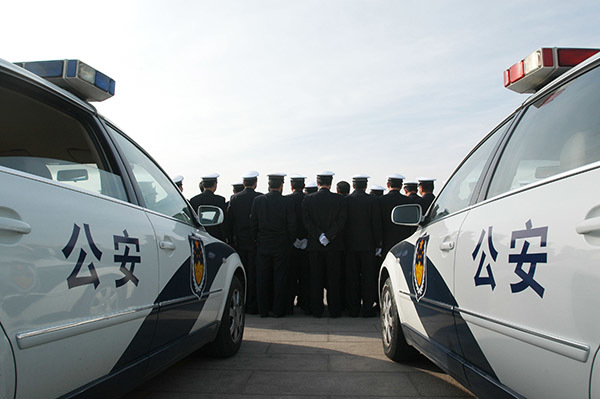Chinese construction workers arrive at their accommodation after working on the construction site. (Reuters Images)
[People News] Starting from September 1, China will strictly enforce the mandatory payment of social insurance. According to a judicial interpretation by the Supreme People’s Court, any private agreements to evade social security contributions will be deemed invalid. In simple terms: from September 1 onward, paying social security is compulsory in China, affecting hundreds of millions of people. Three groups, in particular, will be deeply impacted.
China’s social security system consists of the “Five Insurances and One Housing Fund”: pension, medical, unemployment, work-related injury, maternity insurance, plus the housing provident fund.
Previously, there was a common understanding between workers and employers: “If you voluntarily give up social security, you’ll get an extra 1,000 yuan per month—do you agree?” Many workers signed such agreements in exchange for higher take-home pay.
From September 1, however, this arrangement is no longer valid. Even if employees consent and sign, employers may still face legal violations. Offenders must not only pay arrears but also a daily late fee of 0.05%.
This means small shop owners, food delivery platforms, and small factory bosses can no longer escape once they employ workers.
The new regulation has hit like a bomb, triggering a strong backlash across China. Netizens questioned whether the state had run out of money and was now “collecting grain to fill the barn,” squeezing more money out of workers.
Analysts point out that while the reform appears to safeguard workers’ rights, the reality is that China’s social security system has reached a critical point.
On one hand, the number of retirees drawing pensions is increasing, while the number of young people paying into the system is shrinking. In the past, three workers supported one retiree; now, it’s down to two supporting one. With over 20 million people from the 1960s baby boom retiring each year and annual births falling below 9 million, the funding gap is obvious.
Meanwhile, many local governments have diverted social security funds to fill fiscal shortfalls. According to the State Council’s June 2024 audit report, more than 20 provincial-level governments misappropriated 60.2 billion yuan of pension funds to repay debts and pay salaries. This has further undermined public confidence in the already near-bankrupt system.
Official data show the deficit is widening: in 2023 alone, the central government injected over 2.4 trillion yuan into the social security fund.
So, who will be hardest hit? An article on Sohu pointed out three groups whose income will fall and costs will rise:
1. High-income earners – Higher contribution caps
One major change is the removal of regionally set payment caps. Instead, contributions are uniformly capped at three times the local average salary.
For example, in Shanghai in 2025, the average monthly salary is 17,300 yuan, making the cap 51,900 yuan. At a 27% contribution rate, monthly payments could reach about 14,013 yuan.
2. Small and micro enterprises – Severe cost pressures
For China’s 52 million small and micro enterprises, the new rule requires full contributions for every employee, eliminating past practices of underreporting salaries.
Take a small garment factory in Guangzhou with 15 employees: its annual social security bill will rise by about 180,000 yuan. A survey by the Guangzhou SME Association found that 47% of small firms cannot afford full contributions, and 23% of owners are considering closure or transformation.
“Our profit margin will drop from 8% to about 3% after this. There’s almost no room left for growth,” said Mr. Liu, the factory owner.
Moreover, employees may accept no social security, but they will never accept lower take-home pay. If employers don’t pay, lawsuits become even riskier.
3. Gig workers – Forced enrollment challenges
China has 260 million flexible workers, the group most affected by this reform. The new rule requires anyone earning more than 60% of the local average wage to enroll and prohibits interruptions.
In Beijing, that threshold is 9,480 yuan per month. Anyone earning above that must join, paying at least 1,892 yuan monthly. A 90s-born livestreamer named Xiaolin, earning about 12,000 yuan a month, admitted: “I understand the importance of social security, but the sudden fixed expense really makes life tight.” Surveys show 65% of flexible workers expect reduced income under the new rule.
Wang Dan, director of the Dialogue China think tank, commented in Taiwan’s Up Media: “For businesses, social security contributions are rigid costs—you can’t cut them or delay them. When the economy is good, companies may bite the bullet, but now, with falling orders and shrinking profits, this cost becomes the last straw that breaks the camel’s back.”
Experts predict this regulation could trigger a massive wave of small business closures in China.











News magazine bootstrap themes!
I like this themes, fast loading and look profesional
Thank you Carlos!
You're welcome!
Please support me with give positive rating!
Yes Sure!